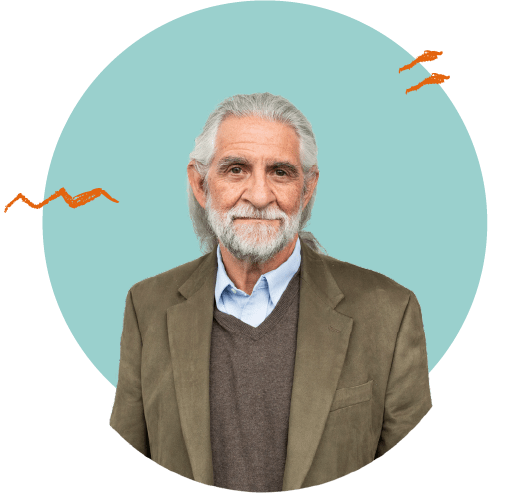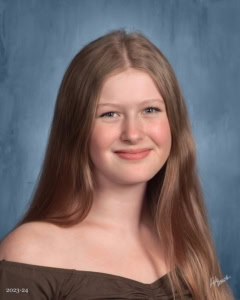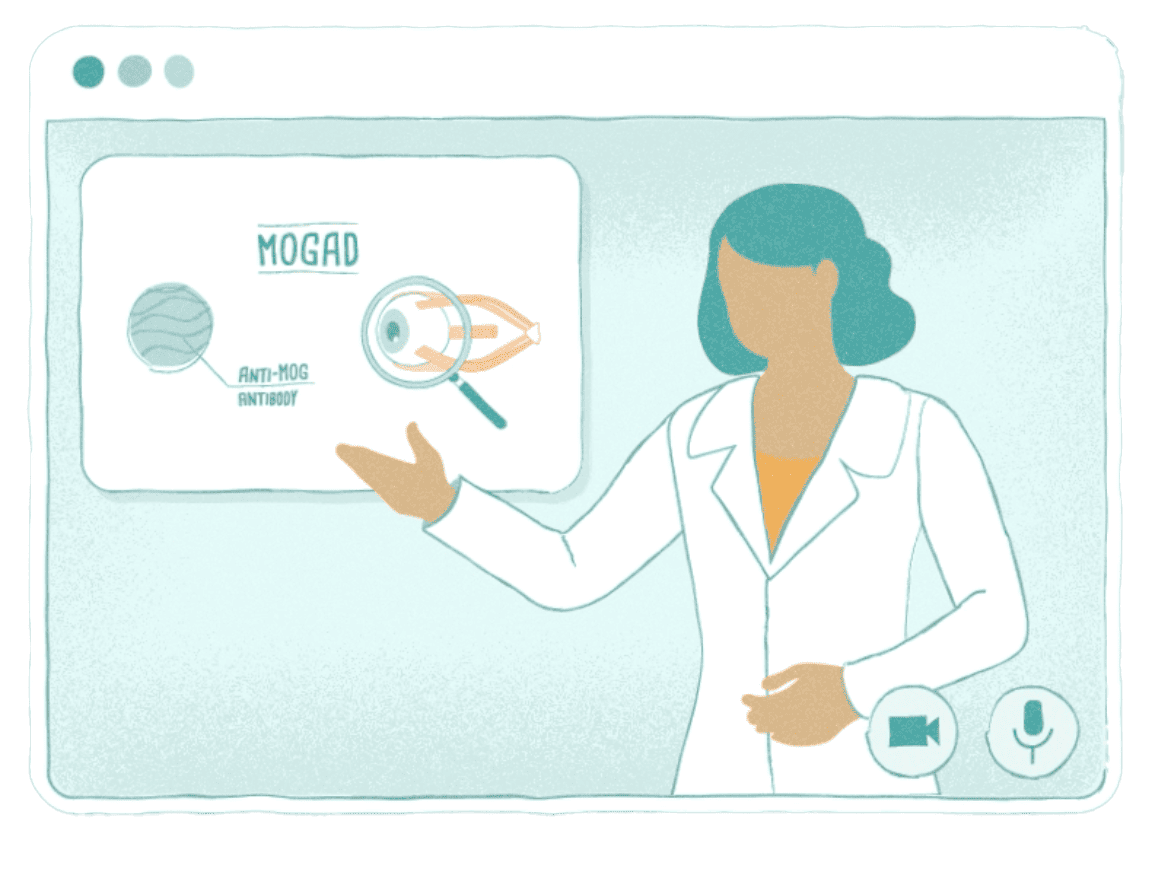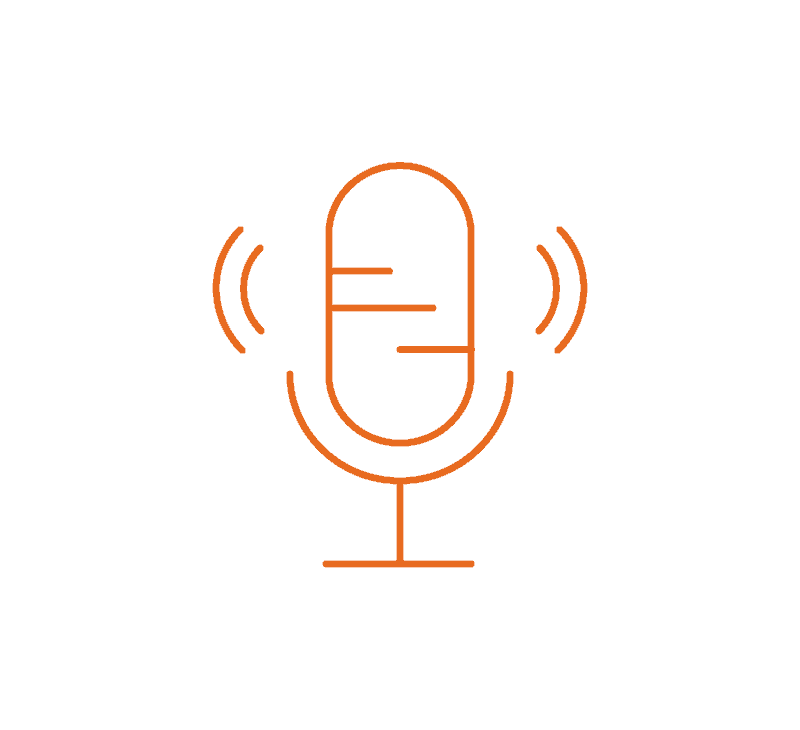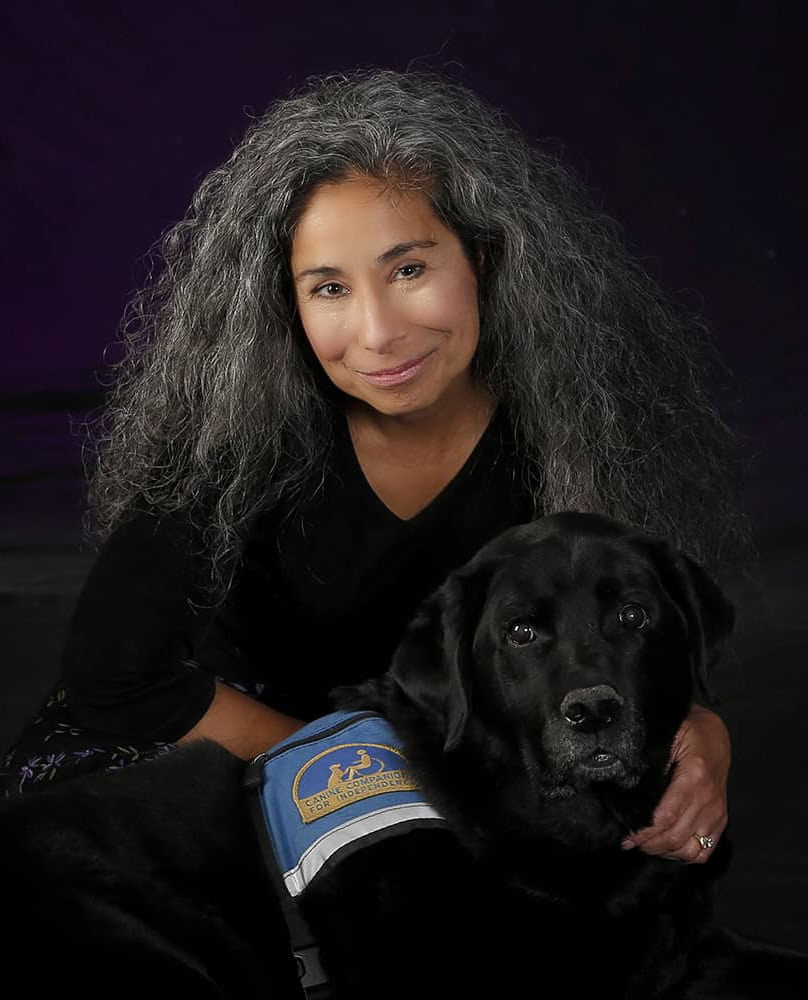00:00
A message from the President, Sandy Siegel
It is my pleasure to present to you the 2023 Siegel Rare Neuroimmune Association Annual Report.
Very early on in our history, Jim, Debbie, Paula, Pauline, and I decided that our organization was going to have a membership and that there would be no membership fee. We operated that way from the outset, and we formally incorporated that rule during a public board meeting we held at the 1999 symposium in Seattle. It was a brilliant decision if I do say so myself.
The first consequence of that decision was that we had formed the basis of a community.
Our Mission
The Siegel Rare Neuroimmune Association (SRNA) advocates for, supports and educates individuals and their families diagnosed with acute disseminated encephalomyelitis, acute flaccid myelitis, MOG antibody disease, neuromyelitis optica spectrum disorder, optic neuritis, and transverse myelitis, and accelerates and invests in scientific research, therapy development and training of clinician-scientists dedicated to these disorders. Our end goal is to improve the quality of life of individuals with rare neuroimmune disorders and redouble our commitment to finding a cure. Together.

From
121 countries
Building connections lessens the isolation that often comes with one of these diagnoses. Our Support Group Network and Peer Connect Program unite people from all over the world with similar experiences. Our “This is Me” Campaign and Blog share the stories of the resilient people we work with. Our Walk-Run-N-Roll events allow participants to bring their friends and families together and raise awareness for these disorders. Our annual Quality of Life Family Camp connects children diagnosed with rare neuroimmune disorders, their families, and medical specialists.
In 2023, we were able to match 31 participants with volunteer Peer Connect Leaders (PCLs) as part of our Peer Connect Program. PCLs are trusted individuals who live with a rare neuroimmune disorder and can offer emotional support, share similar experiences, and recommend resources. This volunteer-led initiative connects individuals diagnosed with a rare neuroimmune disorder or their care partner and loved ones to provide a safe space to relate to shared experiences.
When someone receives a diagnosis of a rare neuroimmune disorder, they likely have never heard of this diagnosis before and may never meet someone with the same condition in their life. This is why we have built a virtual community to encourage connections all over the world. In 2023, we continued growing our Support Group Network, and held 71 support group meetings worldwide. More than 426 members attended one of our Support Group Meetings in 2023.
Listen to Lyd Lacey here:
At a Glance
71
Support Group Meetings held
> 426
people attended a support group meeting in 2023
In 2023, we expanded our “This is Me” Campaign, in which members of our community share personal videos about their experiences to increase understanding of rare neuroimmune disorders and to provide a forum for sharing personal stories and experiences. We feature these personal videos on social media. A total of 4 individuals submitted their video stories, which were published on the Campaign page and viewed over 1,900 times. Other community stories, along with research summaries, SRNA news, and more are featured on our blog. In 2023, we published over 50 blog posts and had over 2,500 subscribers.
Our Walk-Run-N-Rolls have been one of our most powerful awareness initiatives since community leader Colleen Spaeth led the first one in 2012. Since then, those diagnosed with rare neuroimmune disorders, their family and friends, sponsors, and medical professionals have come together to walk, run, or roll to raise awareness and funds to support the important work we do.
In 2023, with the help of some amazing volunteer hosts, we held four successful Walk-Run-N-Roll (WRNR) events in Missouri, Massachusetts, North Carolina, and Texas.
At a Glance
4
Walk-Run-N-Rolls held
> 226
people attended
$29,100
raised
In 2023, we hosted SRNA’s Quality of Life Family Camp in person at Morgan’s Wonderland Camp in San Antonio, TX. In July 2023, 20 families across North America traveled to Texas. This year’s camp offered new experiences and activities that were awesome, exciting, and fully accessible. A zipline, a giant swing, a challenge course, and a giant climbing wall were a few options that many in our community may not have been able to participate in before attending camp at Morgan’s. The new activities challenged everyone to step out of their comfort zone and face challenges with bravery, feel included, and do so safely. An accessible camp means that disabilities do not limit anyone from participating fully in all activities. A camp with SRNA means feeling welcome, comfortable, and understood.
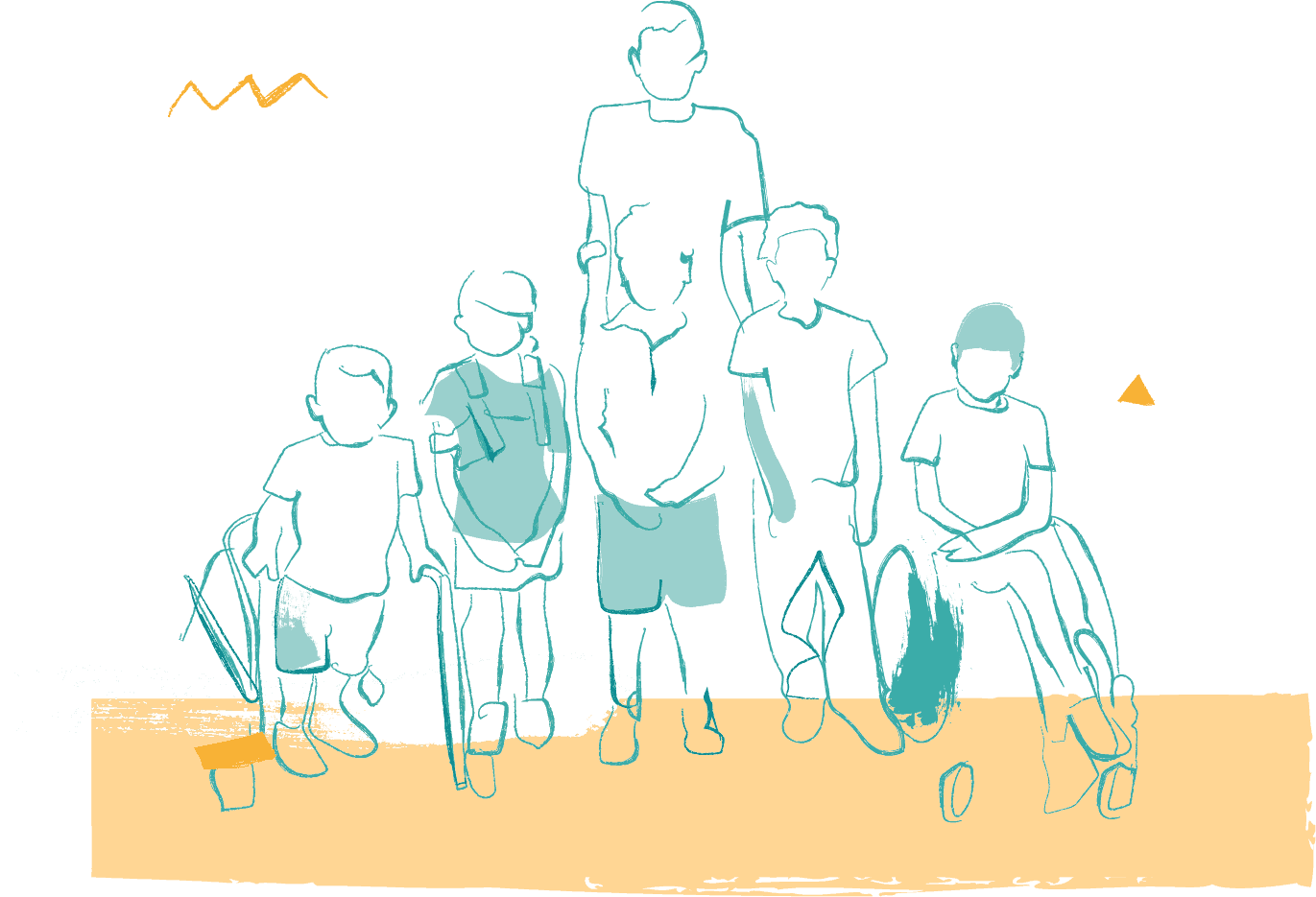
There are many ways to volunteer with SRNA, and we would love to have your help. Becoming a Peer Connect leader or Support Group leader are just two of the many ways you can ally with our mission. Telling your rare neuroimmune story through our “This is Me” Campaign or our Blog can help others with rare neuroimmune conditions feel seen. Hosting our Walk-Run-N-Roll events or volunteering for the sake of families attending our annual Quality of Life Family camp are also great ways to get involved.
Listen to George Huhta here:
In 2023, 548 new members joined our community. We take our dedication to care for our community seriously by providing up-to-date medical information that empowers those living with rare neuroimmune disorders to make informed decisions about their health. Our community found this information by listening to our podcasts, attending our symposia, looking through our resource library, finding a doctor specializing in their disorder through our Medical Professional Network, or asking questions through our Myelitis Helpline.
In 2023, we manifested that care by developing the first-ever Online Learning Course, complete with explanatory videos and knowledge checks that enhance the dynamic learning experience. The content covers topics such as the nervous system, the immune system, an introduction to rare neuroimmune disorders, and fast facts modules on the six disorders SRNA advocates for.
Our Medical Professional Network makes it possible to find healthcare providers who have experience with the specific rare neuroimmune disorders we advocate for. Our community can search by location, name, and specialty to find someone who can help with their medical situation. The directory is frequently updated as we work toward making connections with healthcare professionals and educating the medical community about these disorders.
At a Glance
248
medical professionals in the network
SRNA has an extensive collection of information on rare neuroimmune disorders available, which is housed in our Resource Library. Podcast recordings, videos of presentations from past symposia, research summaries, information sheets, and more are available at no cost to anyone with internet access. In 2023, we added 65 new resources to the library.
At a Glance
65
new resources added in 2023
We started two new podcasts in 2023: ADEM Academy and the Community Meets Clinic podcasts.
We hosted 15 Ask the Expert podcasts, 5 ABCs of NMOSD Podcasts, 3 ADEM Academy podcasts, and 1 Community Meets Clinic podcast. Our Ask the Expert series received 3,374 listens on streaming platforms and 3,647 views on YouTube. The ABCs of NMOSD series received 519 listens on streaming platforms and 833 views on YouTube. ADEM Academy received 80 listens on streaming platforms and 877 views on YouTube. Community Meets Clinic received 136 views on YouTube.
These podcasts allowed our community to hear the most up-to-date research and clinical knowledge from medical experts.
Our education podcasts are sponsored in part by Amgen (formerly Horizon Therapeutics), Alexion, UCB, and Genentech.
At a Glance
21
experts
24
podcasts hosted
> 9,000
podcast listens
The 2023 Regional Rare Neuroimmune Disorders Symposium (RNDS) was a one-day regional educational and advocacy event for those with acute disseminated encephalomyelitis (ADEM), acute flaccid myelitis (AFM), MOG antibody disease (MOGAD), neuromyelitis optica spectrum disorder (NMOSD), optic neuritis (ON), and transverse myelitis (TM), as well as their families, care partners, and medical professionals.
There was also two virtual symposia, one in English and another in Spanish.
The events were well attended, with over 80 people attending in person and 223 registering for the online event. The first Spanish RNDS had 17 people registered. The recordings have been posted online to provide accessible information and resources for non-English speaking individuals and families affected by these disorders.
The symposia featured over 25 talks by over 30 medical experts, providing a comprehensive and in-depth exploration of the various rare neuroimmune disorders.
All the resources were made available and, as of January 19, 2024, recorded sessions were viewed 21,565 times.
The events provided a valuable educational and networking opportunity for those affected by rare neuroimmune disorders and their families, care partners, and medical professionals. SRNA’s RNDS helped increase understanding of these disorders and provided a platform for attendees to connect and find support. The success of this event highlights the importance of providing such opportunities for our community.
At a Glance
25
presentations were given at the 2023 RNDS
21,565
2023 RNDS video views
320
participants at the 2023 RNDS
The Myelitis Helpline is a free online resource that allows those who have recently been diagnosed, or anyone at any point after the onset of a rare neuroimmune disorder, to get answers and support about living with their disorder and to ask detailed questions. The most frequent requests on our Helpline in 2023 were from people newly diagnosed who sought a better understanding of their diagnosis and treatments. Other frequent Helpline requests were to ask a medical question, find a clinician nearby, ask questions about research, and look for financial support.
At a Glance
555
individuals supported through the myelitis helpline in 2023
SRNA’s Pauline Siegel Eclipse Fund for Research is dedicated to funding and conducting research to help better understand, treat, and ultimately cure ADEM, AFM, MOGAD, NMOSD, ON, and TM. In order to encourage more clinician-scientists to specialize in rare neuroimmune disorders, we fund their fellowship training through the James T. Lubin Fellowship. In 2023, the fellowship recipient was Haiwen Chen, MD, who is studying how antibodies and immune cells from patients with MOGAD affect brain cells and their connections.
In 2023, Dr. Haiwen Chen started her James T. Lubin Fellowship. Dr. Chen is a pediatric neurologist and neuroscientist who received her medical degree from the University of Maryland. She then completed a Pediatrics Residency at The Johns Hopkins Hospital in Baltimore, Maryland. For her fellowship, she is working with the neuroimmunology team at the Johns Hopkins School of Medicine under the mentorship of Dr. Carlos Pardo. She is interested in understanding how MOGAD affects neurons and oligodendrocytes to cause neurological dysfunction. To do so, they are working on developing an in vitro model system of neurons and glia to assay how they are disrupted by MOGAD autoantibodies and the associated inflammatory response, where macrophages, T-cells, B-cells, complement, and microglial activation through cytokine release have all been implicated.
Understanding this process may help us understand how MOGAD causes brain and spine dysfunction, allowing us to design better strategies to treat the disease. For example, understanding what part of the immune system may be overactive in MOGAD may allow us to selectively target and suppress that particular part of the immune system to reduce disease.
The Eclipse Fund was established in the memory of Pauline H. Siegel. The fund has been, is, and will continue to be used to support and accelerate SRNA’s research portfolio to fund discoveries that will directly impact the quality of life for the members of our community.
In 2023, it helped to fund research into idiopathic transverse myelitis. It also funded research to create an assessment of condition-specific knowledge in patients with rare neuroimmune disorders, and an assessment on the impact of social disparities of health on disability and access to care in NMOSD patients.
Despite the difficulties she faced, Pauline always managed to see and feel the blessings of her experience, and never lost hope for a better tomorrow. Pauline lived her life trying to improve the future of other people with TM and other rare neuroimmune disorders – NMOSD, MOGAD, ADEM, ON, and AFM. She was a powerful advocate, and touched us all with her compassion and vitality.
The Pauline H. Siegel Eclipse Fund drives critical research to:
- Restore Function The first FDA approved cell therapy to promote repair through myelin regeneration in Transverse Myelitis is set to begin in 2018. The Siegel Rare Neuroimmune Association, Q Therapeutics, and The University of Texas Southwestern are collaboratively sponsoring this first human safety study to treat central nervous system disease.
- Identify Genes and Causation Research at Johns Hopkins University has shown a gene mutation (VPS37A) that is currently known to be present only in Transverse Myelitis patients. The Eclipse Fund will support the validation of this gene and its role in causation.
- Improve Diagnosis Biomarkers and novel imaging techniques, once identified and validated, help accurately diagnose myelitis in the acute phase. Recent studies funded by SRNA and conducted by the Rare Genomics Institute and The Johns Hopkins Transverse Myelitis Center have revealed an antibody in TM patients that needs further investigation and has the promise of unveiling more details about the biology of the disorder.
- Investigate Novel Therapies The Eclipse Fund seeks to fund the development of scientific models of disease that can be used to test existing drug therapies. The goal is to ensure that all potential therapies for restoration and repair are investigated.
Our patient registry has been designed to learn more about the natural history of rare neuroimmune disorders, treatments and outcomes using standardized tools in order to advance research about rare neuroimmune disorders, collaborate with researchers from around the world, and identify participants for clinical trials.
The SRNA Registry continues to grow. We have 711 participants with the following diagnoses – 67% TM, 10% NMOSD, 10% MOGAD, 5& ADEM and 4% AFM. 90% are adults and 69% are in the United States. 60 people joined the SRNA Registry in 2023, and we also launched our follow-up survey for participants who filled out the survey a year or more than one year prior. We have currently received 210 entries for the follow-up survey.
Having participants share information about their diagnosis, treatment, and outcomes over the years helps us guide our programs and research.
At a Glance
60
new people joined the SRNA registry in 2023
Join Us
We believe that everyone has a role in improving the quality of life of people with rare neuroimmune disorders. Whether you support us with your time, expertise, or funding, you will be a key player in helping us end rare neuroimmune disorders for good. Join us. We can’t do it without you.
Use Your Voice
You are your own most powerful advocate. Your own voice is the most effective in relaying your story and it must be heard! Share your story with your friends, family, and local community. Encourage and empower others by sharing your story through our “This is Me” Campaign or on our blog. Change begins when we speak up and make our voices heard!
Organize a Walk-Run-N-Roll
Begin locally. Start a Walk-Run-N-Roll in your community to raise awareness and funds for these rare disorders. Join others and share your experiences of living with or caring for someone with a rare neuroimmune diagnosis. These events are vital for emotional and fundraising support. Start planning today!
Start a Support Group
Sharing our experiences and learning together with others who truly understand what it is to live with or care for another with a rare neuroimmune disorder can be life-changing. Start a Support Group in your area to connect with others. Our own voices are powerful but just imagine what can be done when we come together as one!
Volunteer
Looking for a way to get more involved in a cause you care about? Become a volunteer with the Siegel Rare Neuroimmune Association! We are excited for you to show your passion to connect, care, and accelerate research for a cure for rare neuroimmune disorders. Contact us to learn how you can volunteer for SRNA.
Fundraise
Your fundraising fuels the programs that are improving the quality of life of individuals with rare neuroimmune disorders. From bake sales to dinner, auctions, and birthday fundraisers, they’re creative and inventive! You can collectively raise thousands of dollars and be the one responsible for the expansion of our research and education programs. Join us!
Join the SRNA Registry
Share information about your diagnosis in a patient registry that has been designed to learn more about the natural history of rare neuroimmune disorders, treatments and outcomes using standardized tools. By sharing your information, you will help advance research about rare neuroimmune disorders.
Want Support?
We are here for you. If you have questions or want to chat about different ways to get involved, give us a call at +1 (855) 380-3330 or send us an email at [email protected].
Donate
Our work is made possible through the generous support of our community. By choosing to donate to The Siegel Rare Neuroimmune Association, you are actively helping advance research, enhance clinical care, raise awareness, and advocate for those with rare neuroimmune disorders. Join our 30-for-30 Anniversary Campaign and help us build upon this momentum.

Thank you
Our Board of Directors
Deborah Capen
Bruce L. Downey
Dave Evans
Benjamin M. Greenberg, MD, MHS
Lana Harder, PhD, ABPP
Peter C. Johnson, MD
Douglas A. Kerr, MD, PhD
Chitra Krishnan, MHS
Michael Levy, MD, PhD
James Lubin
Linda Malecky
Carlos A. Pardo-Villamizar, MD
Jason Robbins
Barbara Sattler
Sanford J. Siegel, PhD
Dennis P. Wolf
Our Medical & Scientific Council
Audrey Ayres, RN, BSN, MSCN, CRND
Gregory N. Barnes, MD, PhD
Brenda L. Banwell, MD
Daniel Becker, MD
Julius Birnbaum, MD
James Bowen, MD
Janet M. Dean, MS, RN, CRRN, CRNP
Allen D. DeSena, MD, MPH
Jerome deSeze, PhD
Denise Fitzgerald, PhD
Donna Graves, MD
Benjamin M. Greenberg, MD, MHS
Lana Harder, PhD, ABPP
Anu Jacob, MBBS, MD, MRCP, DM
Adam I. Kaplin, MD, PhD
Douglas A. Kerr, MD, PhD
Charles E. Levy, MD
Michael Levy, MD, PhD
Joanne D. Lynn, MD
Maureen A. Mealy, RN, BSN, MSCN
Carlos A. Pardo-Villamizar, MD
Frank S. Pidcock, MD
Kathleen Zackowski, PhD, OTR
Social Media at a glance
> 994
new followers and subscribers
> 2 million
number of unique people who saw our posts
Allocated expenses at a glance
In 2023, SRNA expended a total of $1,237,000, of which $1,111,000 was spent on research, education, and support programs. We are truly grateful for the sacrifices made by our community and appreciate your generosity. We are mindful of every dollar spent and continue to utilize thousands of hours of volunteer time to manage the organization.
Donations
> 967
total number of donors
$1,1 Million
total donations
2023 Education Sponsors
All educational content and programs are solely developed by the SRNA staff, members of the scientific board and approved by Board of Directors.

